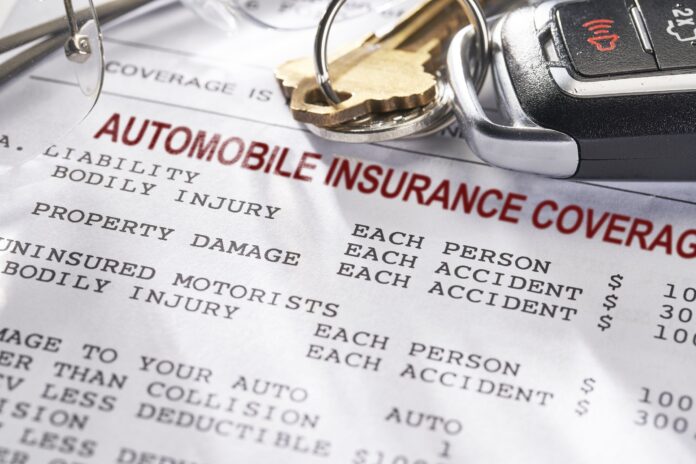The cost of car insurance is dependent on all sorts of things, from the vehicle itself to the place it’s kept overnight.
Unsurprisingly there are driver-specific factors that can determine how much you’ll pay for your policy, and while some things like credit score can be changed, others are entirely out of your control as a customer.
Age is an interesting one, as you probably know that younger drivers are charged much more for cover than their older counterparts.
So why is your date of birth so relevant from an insurance perspective, and what can you do to minimize premium prices regardless?

Finding the best value car insurance
Before we go any further, you should know that whatever your age and circumstances, it’s possible to pinpoint cost-effective car cover if you use comparison sites like CheapInsurance.com.
Getting quotes from as many providers as possible using the tools available online will not only help you make savings as a young driver but also enable you to acquire exactly the level of cover that matches your needs as well as your budget.

Understanding the role of statistics
Insurance prices are carefully calculated based on cold, hard figures which providers have access to. While some data is generated internally, most is publicly available, and even a brief glance at the statistics relating to young motorists will show you why insuring a car costs them a lot of cash.
Annually a total of around 2400 teenage drivers are killed on the roads, and a further quarter of a million are injured in auto accidents, according to the CDC.
This means that people aged between 13 and 19 are classed as being a higher risk prospect for insurers, since it is more likely that the provider will need to pay out to cover claims made for their younger customers.
Furthermore, those in the narrower band of 16 to 17 years old are at most risk, with a trebling of the fatal crash rate even compared with those who are 20 or older.
The real danger point comes in the month following a young driver acquiring a license. And males are twice as likely as females in this age group to get in accidents while behind the wheel.
All the statistics point to young drivers being more reckless on average than their peers who have a few more years under their belt. And of course, if insurers were legally prevented from discriminating against customers based on age, then it would end up penalizing everyone because premiums would be forced up to account for the greater burden which younger drivers represent.

Looking at driving time
To further put into focus the reason for car insurance being weighted against the young, it’s worth pointing out that all of the aforementioned figures for injuries and deaths in auto accidents come in spite of the fact that younger drivers are in charge of vehicles for much shorter time frames than fully grown adults.
This means that an average commuter who clocks up 10,000 miles a year on the roads is not seen as anywhere near as risky as a car owner under the age of 20 who drives just 2,000 miles annually.
In addition, because young drivers are typically riskier prospects for auto insurers, it doesn’t really matter if you shop for cover based on a very low annual mileage, because age outweighs almost everything in this bracket.

Cheap car insurance is not eternal
As a rule of thumb, it is safe to assume that the older you become and the more time you spend as a car owner without making a claim, the cheaper your insurance will be.
However, this is only true up to a point, as there will come a time many decades down the line when insurance costs will begin to creep upward.
The proportion of older drivers on the road is on the increase, and the CDC reports that 45 million people aged 65 or above are licensed in the US alone.
Those aged 70 and older are at a higher risk of being injured in a crash, although this is partly as a result of the fact that the frailty that comes with aging leaves them more likely to suffer serious side effects after an impact.
Issues with eyesight, as well as with cognitive capabilities, do come into play the older you get, and there are age-related conditions which will prevent you from driving altogether.
Even if you are still licensed, as you move out of your 60s you will have to face up to the reality of being charged more for car insurance.
Of course, this may be less of a concern for younger drivers today, who by the time they reach retirement age will doubtlessly have access to fully autonomous vehicles that are already being developed at the moment. This could make the question of car insurance less relevant later in the century, even if it is still a concern now.

Specialist policies are available
Young drivers might feel trapped by the car insurance costs they face, but there are packages put together by insurers which are targeted at meeting their needs and giving them the best value for money.
This is where using the aforementioned comparison tools can also help a lot, as it will let you distinguish between the insurers that are clearly trying to price themselves out of the young driver market and those that are actively pursuing customers in this niche.

Concluding considerations
If you do think that your current insurance policy is unfairly expensive because of your age, you can at least look forward to enjoying lower prices in years to come.
Furthermore, you have to remember that it’s not just general statistics which impact car insurance costs, but also personal factors. Keeping a clean driving record is crucial, as no matter your age if there are blemishes on it then insurance will be much more expensive by default.









